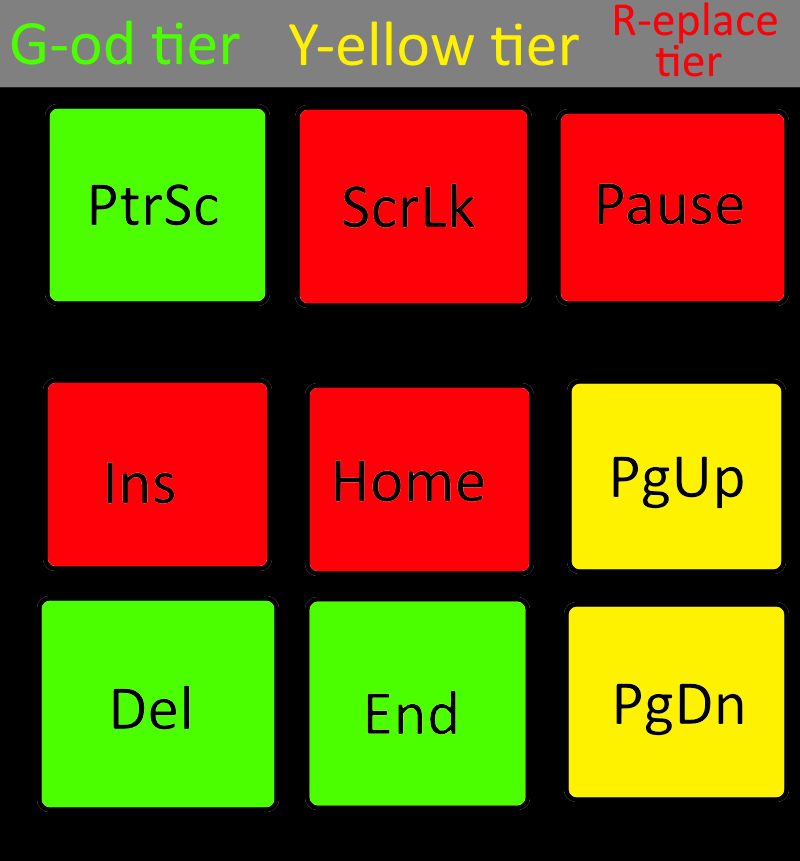this post was submitted on 16 Jan 2024
188 points (78.1% liked)
Programmer Humor
38113 readers
167 users here now
Post funny things about programming here! (Or just rant about your favourite programming language.)
Rules:
- Posts must be relevant to programming, programmers, or computer science.
- No NSFW content.
- Jokes must be in good taste. No hate speech, bigotry, etc.
founded 6 years ago
MODERATORS
you are viewing a single comment's thread
view the rest of the comments
view the rest of the comments

I'm also IT, hello brother.
I use the F keys all the time. I would argue that they were, and still are, function keys. They're a built in set of hotkeys to functions. F1 was, and often still is, the hotkey for help. Most people simply default to the menu, about, help or whatever. Using their mouse instead of the keyboard. I find most help dialogs in Windows applications to be fairly useless. They're often populated with incomplete and/or out of date information.
F2 in operating systems is most often used for rename, in my experience. F4, specifically alt+F4 is close, F5 for refresh, F6 varies; the one I know is for the address bar in Chrome. Also in Chrome, F7 is caret browsing, and F12 for developer tools or diagnostics. The keys are not universal and change from app to app, as they should.
IMO F-keys are unsung heros of advanced users, where the majority don't even know what they are there for.
I will agree and commiserate about bios being some selection of F2/F6/F8/F11/F12/delete. Often on a system I have not used in a while, I'll just bang every one of those keys in an effort to get to some menu that will allow me to enter the BIOS/UEFI. It often works, other times I'm just staring at the screen until it tells me what to press, or frantically googling it while the system is shutting down, trying to find the right key before it gets to the BIOS loading screen.
Good luck out there brother.